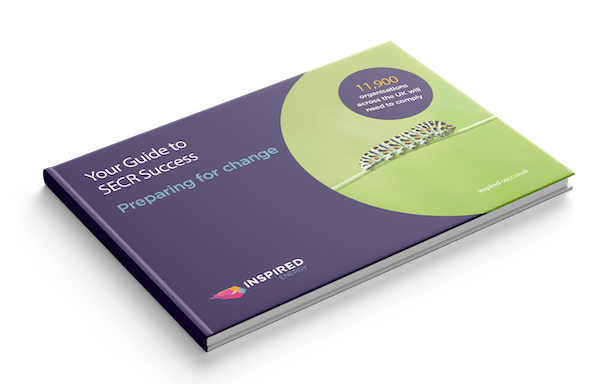
Craig Stephenson
Manager of Corporate Services & EMEA Travel , Wiley
As part of our SECR series, we spoke to Craig Stephenson, manager of corporate services & EMEA travel at global publishing firm Wiley. Craig is responsible for the procurement of energy and how it’s used across the organisation, as well as ESOS and SECR compliance in the UK. He’s also part of a global project looking at our carbon footprint and how to reduce it and took the time to explain how the firm has approached energy reporting and where it fits into a wider sustainability plan.
Questions & Answers
How does Wiley approach energy reporting?
We have three sites in the UK: two office premises in Oxford and Chichester and one distribution warehouse in Bognor where we store and distribute our books and journals. We’re also a multinational firm and before the pandemic, there was a lot of international travel needed that needs to be included in reporting.
We treat energy reporting as an ongoing process. We work with Inspired Energy - they tell us what data we need to compile and we reach out to our offices every quarter to collect data on energy use. At the end of the year, we gather extra information such as travel mileage and the number of company cars in use. We send Inspired that data and they crunch it and turn it into a report for us to review and submit for inclusion in our annual report.
What impact does SECR have on your organisation’s carbon reduction strategy?
SECR is something we have to comply with, along with ESOS, but our Board is based in America and we have sites across the globe so the UK-based schemes that only impact our sites here aren’t on their radar.
We’ve reviewed our energy reporting data to identify some quick wins but we have a global sustainability programme that’s prompting action from our board and driving our strategy.
We have just achieved carbon neutral status across the organisation. Last year, we brought together groups across the organisation and looked at data across our global sites. The project manager reports directly into the CEO in the United States so it’s a priority for the firm.
How is data informing that strategy?
We’re very meticulous about our energy data and how we store and gather data. That information is our footprint, and we’re using it to target priorities, establish our baseline and create a strategy to reduce it.
As an international company, we expected company travel and flying to be the biggest emitter of CO2 but that work found that third party distribution is the largest contributor to our footprint. Driving down that is a longer term aim, but we’re working on projects and initiatives that fit with our carbon neutral strategy.
There is always low hanging fruit to pick, like introducing LED light bulbs, and the last 12 months has seen a shift in mindset to work remotely, but we need to focus projects on where we can make the biggest impact, like travel and distribution.
What action did you take to achieve carbon neutral status?
We collected data from travel, utilities, building and distribution across all Wiley offices, looking at granular-level data such as types of waste disposal, types of distribution, fleet vehicles fuel types and whether any of our energy is green etc.
From that data, we achieved a benchmark to work from and to determine how to continually lower our carbon footprint going forward. The next stage will be to widen the scope of the data collection, with items such as water usage and waste and grey fleet emissions. This will more than likely start in October 2021.
Distribution emissions must be a common issue across the industry: is there much appetite to tackle them?
There’s certainly appetite for sustainability from the sector, but the ‘how’ is difficult. Smaller initiatives help but it has to go deeper to make a real difference: cultural shift is needed, and that takes longer and is more complex to achieve.
Distribution is a difficult area: until green fleets are the norm then service, price and efficiency will always be prioritised over sustainability. It will take the government announcing a ban on diesel trucks and companies like Tesla leading the way to develop electric trucks to deliver real change in the industry.
What impact has the Covid19 pandemic had on your reporting and sustainability plans?
During the pandemic, the whole organisation has worked remotely and it has worked well, so we expect travel to reduce - but the biggest challenge for us is that It’s made it harder to forecast the future and what our travel and office footprint will look like, even in the short term as lockdowns and restrictions change at different times: one office opens up as another one has to close temporarily.
What advice would you give to your peers on SECR compliance?
Make sure that HR and finance are involved from the beginning: get them on board and engaged from the start and make sure they understand what’s required from them to make it easier to get the data that you need. When it comes to your data, make sure it’s updated on a regular basis rather than leaving it to the end.
What do you think the future has in store for energy reporting?
The Government needs to incentivise companies to reduce their footprint. Unless firms prioritise sustainability or set targets like becoming carbon neutral, it won’t be done: ongoing priorities or profitability will always be seen as more important. Businesses need to know what’s in it for them.
To discuss how our SECR experts can help your organisation get a handle on its energy data and simplify the compliance process, get in touch today or visit our dedicated SECR pages to find out more.
